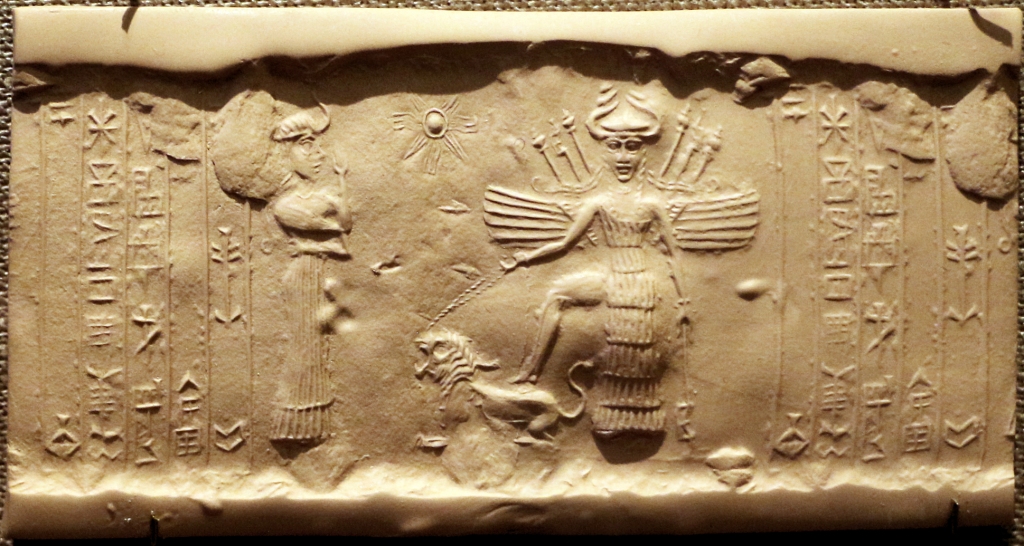
It’s good for us to remember that affirming the humanity of Jesus is just as important as affirming his divinity. Not only the life of Jesus, but even his titles teach us that he is The Godman – fully human, fully divine.
Like many Christians, when I was growing up I assumed that the title Son of Man emphasized Christ’s humanity and the title Son of God emphasized his divinity. I was very surprised to later learn that I had it somewhat backward. While both titles can teach us of Christ’s humanity and his divinity, Son of God emphasizes Christ’s humanity, telling us that Jesus is the true Adam, the true heir of David, the true Israel – all three of whom are called God’s son in the Scriptures. And Son of Man emphasizes Christ’s divinity by linking Christ directly to the Daniel 7 Son of Man who comes on the clouds of heaven, is worshipped by all the nations, and rules an eternal kingdom. All of those descriptives are shouting in OT imagery and language that this figure in Daniel’s dream is, in fact, divine.
Yet even though Son of Man’s primary emphasis is Christ’s divinity, it truly does have a secondary emphasis that this figure is also human. When the original audience read Daniel’s dream account, they would have understood his “and behold, with the clouds of heaven there came one like a son of man” to mean essentially, “get this, someone who looked like a man came on the clouds.” Son of Man at this time was a phrase that meant human, son of Adam, not all that different from how Aslan uses it when addressing the Pevensies.
The events of Daniel 7 confirm this. What’s going on in the rest of the dream is that Daniel is shown four earthly kingdoms represented as four violent beasts. He is then shown how God, the Ancient of Days, judges them. Then this is where the Son of Man comes in. Whereas the four violent kingdoms are described as like a bipedal wing-clipped lion, like a lopsided bear, like a flying leopard with four heads, and like a mystery monster beast with iron teeth, this next figure is – mercifully – like a man. A Son of Man comes and is given dominion over the beasts. Sounds a lot like the creation account.
This connection to creation and the phrase, Son of Man, is made explicitly in Psalm 8.
[3] When I look at your heavens, the work of your fingers,
the moon and the stars, which you have set in place,
[4] what is man that you are mindful of him,
and the son of man that you care for him?
[5] Yet you have made him a little lower than the heavenly beings
and crowned him with glory and honor.
[6] You have given him dominion over the works of your hands;
you have put all things under his feet,
[7] all sheep and oxen,
and also the beasts of the field,
[8] the birds of the heavens, and the fish of the sea,
whatever passes along the paths of the seas. (ESV)
Just as Adam and the Son of Adam/Son of Man were given dominion over the beasts of the field in Genesis and Psalm 8, so the heavenly Son of Man in Daniel 7 is given dominion over and against the kingdoms of the earth that have become beastly. A contemporary reader of Daniel who knew their Psalms and their Torah would have been picking up on these connections. Son of Man communicates human at least, but a human as he’s meant to be. Perhaps the original audience wondered if this figure in Daniel’s dream might somehow be a new Adam.
There’s also a good possibility that readers of Daniel were also readers of Ezekiel since their ministries were happening at roughly the same time. Anyone who’s ever read Ezekiel can’t help but notice the dozens and dozens of times that God addresses Ezekiel as Son of Man. As a prophet, Ezekiel is sent into exile with his people. He suffers with his people and his acted-out punishment is even viewed as being for his people (Ez 4:4-6). Jim Hamilton* says of Ezekiel, “The role which the prophet has assumed among his people is one of representative, intercessor, and substitute.” It is possible that these kinds of roles of the exiled prophet might also be assigned to the heavenly Son of Man by Daniel. If so, then his identity is to be understood as a man who enters into the suffering of his people and bears their punishment with and for them.
The divine imagery of Daniel 7 can’t be missed. The Son of Man is clearly somehow God, even though he is also somehow distinct from the Ancient of Days. This is why the Sanhedrin freak out when Jesus applies this passage to himself. Yet the Adam and Ezekiel connections are there in Daniel 7 also, secondarily emphasizing the Son of Man’s humanity. In this way, the title Son of Man means divine and it also means human.
The result is a wonderful mystery that must have had the original readers engaging in quite the theological chin-scratching. There’s only one God. Yet this Son of Man figure is clearly divine. And yet he’s also distinct from the Ancient of Days and clearly some kind of human. How??? To echo a question from future centuries, “Who is this Son of Man?”
What a privilege to live in a time when we know exactly who he is.
*Hamilton, With the Clouds of Heaven, p. 150
To support our family as we head back to the field, click here.
For my list of recommended books and travel gear, click here.
Photos are from Unsplash.com








